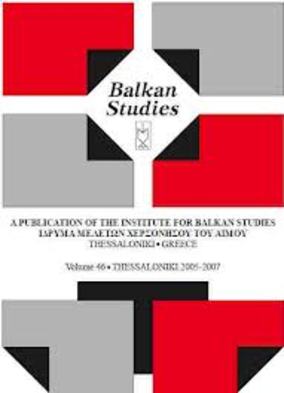The Makedonian contribution to the struggle of Rhigas
Part of : Balkan studies : biannual publication of the Institute for Balkan Studies ; Vol.30, No.1, 1989, pages 33-42
Issue:
Pages:
33-42
Section Title:
Articles
Author:
Abstract:
Rhigas’ intention was not only an armed rebellion of the Greeks againstOttoman rule but also a social, cultural and moral revolution of their lives.He wanted to liberate not only the Greeks but all the peoples of southernEurope and the Near East, including the Turks, from the Sultan’s despotism.This is apparent from his early publications—literary, scientific, geographical,historical, religious—as well as his later revolutionary Thourios, and theProclamation and Constitution based on the French revolutionary model.His interrogation by the Austrian police after his arrest in December1797 showed that Macedonian influences on his ecumenical vision were strong.His aspirations were stimulated by the political ideas as well as the conquestsof Alexander the Great. His secret contacts inside Greece were predominantlylocated in the north—Macedonia, Epiros, and his native Thessaly—as wellas the islands. About half of his known close associates in Vienna were ofMacedonian origin; and several of them were handed over with him to beexecuted by the Turks.Rhigas’ revolutionary ambitions were frustrated, partly because he was unable to enlist the help of the French (particularly Napoleon) and partlybecause he was betrayed. Ironically, even his betrayer was a Macedonian.Like other Greeks, the Macedonians were divided for and against his memoryin the generation after his death. Only in the mid-19th century did all controversyend with a universal verdict in his favour as a poet, liberator and martyr.
Subject:
Subject (LC):
Keywords:
Ρήγας Βελεστινλής




